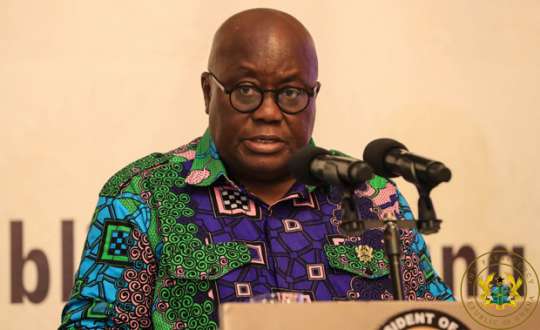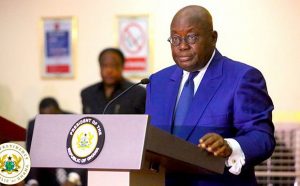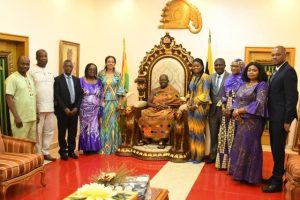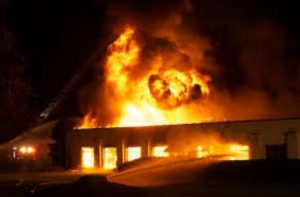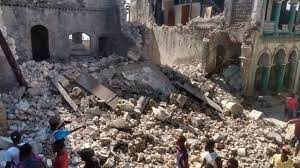The Acting President of the Nandom Traditional Council, Naa Domepreh Gyereh III, has described Akufo Addo’s interventions in the Nandom Municipality, as unparalleled.
Naa Domepreh Gyereh III, added that “the people of Nandom are grateful for the development projects and programmes your leadership has provided. One of our age-long problem, which was our road, under your leadership has seen massive facelift”.
The Urban Roads Project, which was described by the Chief as the brainchild of President Akufo-Addo, “has made our town beautiful, and so we say barika.”
This was made known following President Akufo-Addo’s courtesy call on the Traditional Council, at the end of his 2-day visit to the Upper West Region.
Naa Domepreh Gyereh III acknowledged further government’s efforts in completing the tarring of the Lawra-Nandom-Hamile Road, adding that “we are also happy to note that the EU, through your Government, has considered developing fourteen (14) of our deplorable farm roads. This, in our estimation, will enhance agricultural activities in the area.”
Touching on the President’s vision for education, Naa Domepreh Gyereh III indicated that the introduction of the Free SHS policy has brought great relief to parents.
He added that President Akufo-Addo’s support for Technical and Vocational Education Training (TVET) has resulted in the upgrading of St. Anne’s Vocational Institute in Nandom, with modern infrastructure for skills development, and appealed for the extension of similar facilities to St. John’s Technical Institute, also in Nandom.
“Your Excellency, again we wish to offer our appreciation to you for elevating Nandom District to Municipal status. Out of this deed has resulted in the improvement of services to our people,” Naa Domepreh Gyereh III said.
Additionally, he expressed the gratitude of the Chiefs and people of Nandom to the President “for the commitment you kept with us in your first term in terms of Planting for Food and Jobs, 1-Village-1-Dam, 1 million dollars per constituency, jobs for youth, physical infrastructure, water and sanitation, and most important health in the midst of the coronavirus which has affected most economies.”

